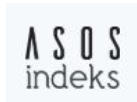Entrepreneurship in Turkey: Present Situation and Sector’s Strengths, Weaknesses Opportunities and Threats (SWOT) Analysis(Türkiye’de Girişimcilik: Alanın Mevcüt Durumu ve Güçlü Yönler Zayıf Yönler Fırsatlar ve Tehditler (GZFT) Analizi)
DOI:
https://doi.org/10.15659/ankad.v4i1.74Anahtar Kelimeler:
Entrepreneurship- Entrepreneurship in the World- Entrepreneurship in Turkey- SWOT analysisÖzet
1980’lerden beri girişimcilik hem hükümetleri hem de halkları içeren kamuoyu tartışmalarının merkezinde yer almıştır. 1980'lerden bu yana girişimcilik hem hükümetleri hem de insanları içeren kamuoyu tartışmalarının merkezinde yer almaktadır. Girişimcilik, politika yapıcılar tarafından, ekonomik kalkınmanın ve sürdürülebilir ekonomik büyümenin bir aracı, yoksullukla ve işsizlikle mücadelede kaçınılmaz bir silah olarak algılanırken, insanlar ise girişimciliği, sosyal ve ekonomik entegrasyon aracı, istihdama ve işsizliğe alternatif, özgürlük ve özerklik garantisi… Maslow'un piramidine tırmanmak için sosyal bir merdiven olarak görmektedir. Bu çalışmada Türkiye Cumhuriyeti'nde girişimcilik ve iş kurma kavramı üzerinde durulmaktadır. Bu kavramların etrafındaki toplu farkındalığın gözleminden yola çıkarak, çalışmamız bir yandan, girişimciliğe yönelik devletin yerine getirdiği eylemler, bir yandan da girişimcilik dinamizminin sosyal, toplumsal ve ekonomik büyüme, gelişme ve refahın ana faktörü haline geldiği bu dünyadaki Türkiye’nin yerini sorgulamaktadır. Bu çalışmada GEI tarafından ilk sırada yer alan 10 ülkenin girişimcilik durumu hakkında bir bilgilendirme yapılmıştır. GZFT analizi aracıyla Türkiye'nin girişimcilik alanındaki güçlü ve zayıf yönleri, fırsatları ve tehditleri ortaya konulmuştur. Türkiye'nin son yıllarda girişimciliğe özel önem verdiği ve girişimciler için ayırılan kaynakları zaman gittikçe attırdığını açıktır. Bununla birlikte, bu çabaların sonuçları önemli ekonomik sonuçlarla hissedilse bile, yenilikçiliği ve bağımsızlığın ve sürdürülebilir gelişmemin garantisi olarak değerlendirilen yeni teknolojiler sektöründeki girişimciliği artırmak için hala çaba sarf edilmesi gerekmektedir.
Referanslar
Bayar, Y. (2012). Girişimcilik finansmanında risk sermayesi ve melek finansmanı. Girişimcilik ve Kalkınma Dergisi, 7(2), 133-145.
Bozkurt Çetinkaya, Ö., Kalkan, A. Koyuncu, O. & Alparslan, A.M. (2012). Türkiye’de girişimciliğin gelişimi: girişimciler üzerinde nitel bir araştırma. Süleyman Demirel Üniversitesi Sosyal Bilimler Enstitüsü Dergisi, 15, 229-247.
Calá C, Josep M.A. & Carod M. (2015). The determinants of entrepreneurship in developing countries. (Elektronic) http://nulan.mdp.edu.ar/2125/1/cala.2015.pdf/25.11.20168
http://www.tpe.gov.tr/TurkPatentInstitute/commonContent/Access date, 18.12.2018.
Işık, N., Göktaş, D. & Kılınç, E.C. (2011). İktisadi büyümede girişimciliğin rolü. Girişimcilik ve Kalkınma Dergisi, 6(1), 147-178.
Kelley, D., Slavica, S. & Herrington, M. (2016). 2015/16 Global Report. Global Entrepreneurship Monitor: http://www3.weforum.org/docs/gcr/2015- 2016/Global_Competitiveness_ Report_2015-2016.pdf. 10.06.2019.
Küçük ve Orta Ölçekli işletmeleri geliştirme ve Destekleme İdare Başkanlığı http://www.kosgeb.gov.tr (Erişim Tarihi: 24.05.2019).
Milli Eğitim Bakanlığı, http//www.meb.gov.tr (Erişim Tarihi: 14.03.2019)
OEDC, Ekonomi işbirliği ve Kalkınma Örgütü, https:/oecd.org (Erişim Tarihi: 07.01.2019).
Özkan, Ş., Emsen Ö. S., Aksu, H. & Gündoğdu, F. (2002). Türkiye'de girişimcilik ve belirleyicileri: Marmara ve Doğu Anadolu Bölgesi üzerine bir uygulama. Ankara Üniversitesi SBF Dergisi, 58-4, P.145-172
Sönmez, A. & Toksoy, A. (2014). Türkiye’de girişimcilik ve Türk girişimci profili üzerine bir analiz. Yönetim ve Ekonomi Dergisi, 21(2), 41-58.
T.C. Kalkınma Bakanlığı (2014). Onuncu kalkınma planı 2014-2018 girişimciliğin geliştirilmesi. Özel İhtisas Komisyonu Raporu.
Türkiye İstatistik Kurumu , http://www.tuik.gov.tr Türkiye Patent Enstitüsü 2015 Faaliyet Raporu. Türkiye’nin Girişimcilik Stratejisi ve Eylem Planı(2015).
Yayınlanmış
Nasıl Atıf Yapılır
Sayı
Bölüm
Lisans
Telif Hakkı (c) 2023 Anadolu Kültürel Araştırmalar Dergisi (ANKAD)

Bu çalışma Creative Commons Attribution-NonCommercial 4.0 International License ile lisanslanmıştır.













